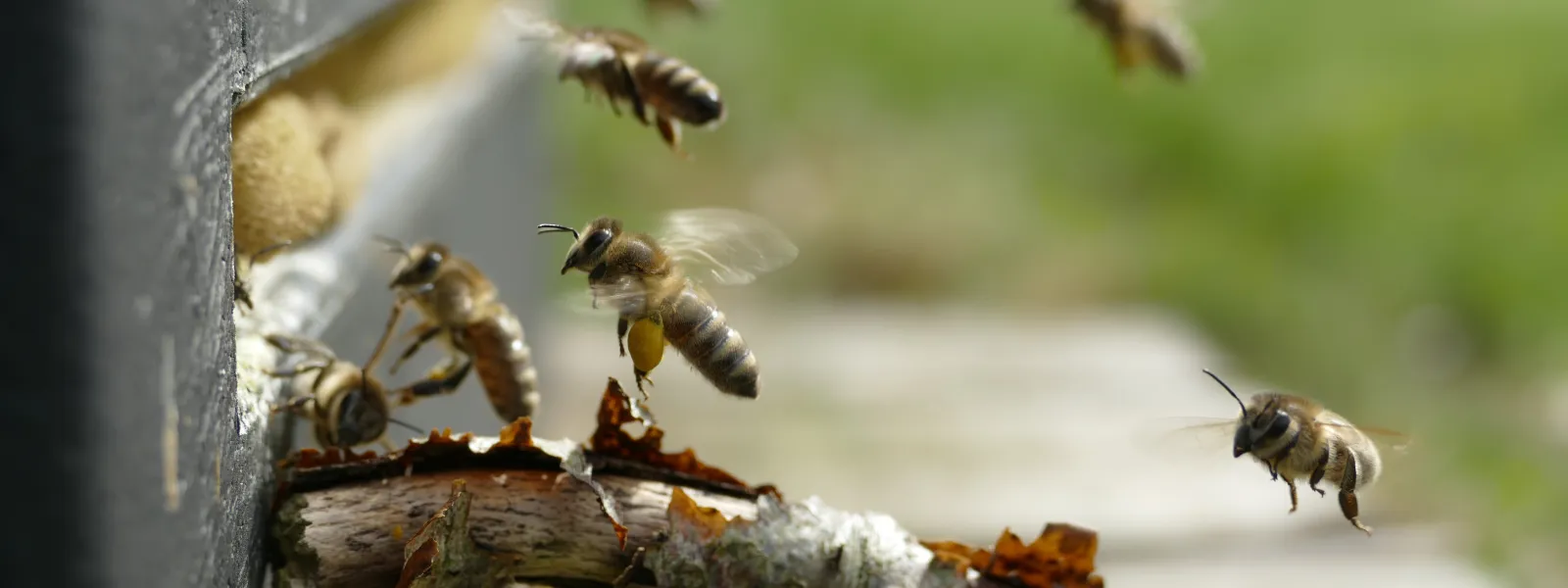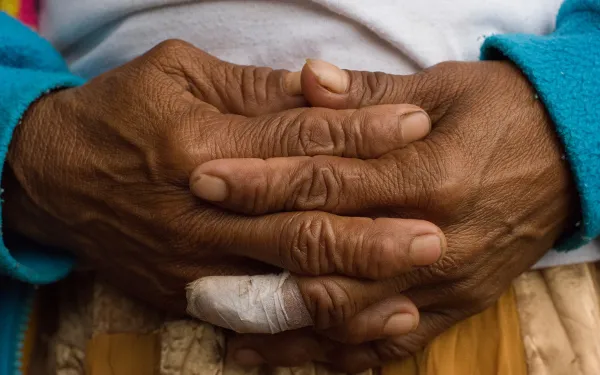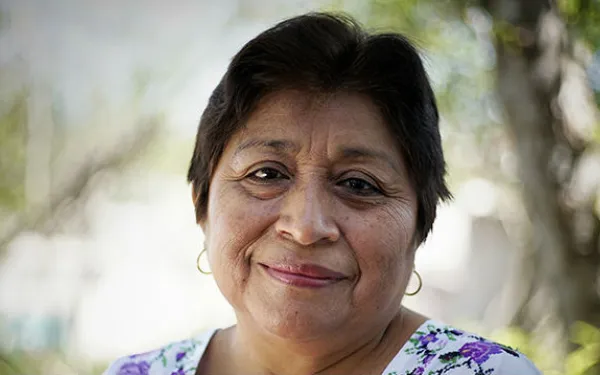
Project
Supporting Mayan beekeepers in their struggle against GMO soy
In the forests of Southeastern Mexico, indigenous beekeepers have tended hives for hundreds of years. Passed down through generations, beekeeping is central to the cultural heritage of Mayan communities in the states of Campeche and Yucatan.
But now, this heritage is threatened.
Farmers and agroindustrial corporations like Monsanto are growing genetically modified soy in indigenous territory, causing deforestation and health concerns. Mexico granted permits to Monsanto without consulting or getting the consent of affected Mayan communities.
The growers are spraying enormous amounts of toxic herbicide on the fields of soy, which soy has been modified to resist glyphosate, the main ingredient in Monsanto’s RoundUp. The World Health Organization has classified it as a probable carcinogen.
Because “RoundUp Ready” soy resists the herbicide, growers no longer have to spot-treat their fields to kill unwanted weeds. Instead, they just douse their fields with the chemical. Wind carries it to homes, schools, water sources, and flowers that bees use to make honey. People who live and work near the fields are exposed to high concentrations of glyphosate, posing even greater health risks to children, pregnant women, and the elderly.
This situation is a clear violation of international law, which requires the States to safeguard the rights of indigenous people. Seeking protection, the Mayan communities took their case to Mexico’s judicial system.
In November 2015, the Supreme Court ruled that Mexico had violated the Maya’s right to be consulted – but the judgment did not address the issue of prior consent. The growing of genetically modified soy has not been suspended.
On July 25, 2016, AIDA and allied organizations—including the Mexican Center for Environmental Law (CEMDA), Greenpeace Mexico, Indignación, Promoción y Defensa de los Derechos Humanos A.C. y Litiga Organización de Litigio Estratégico de Derechos Humanos A.C. (Litiga OLE)—presented this case before the Inter-American Commission on Human Rights.
Partners:

Related projects
Latest News

Moving towards clean food production, without glyphosate
By Sofía García, AIDA intern, and Johans Isaza, former AIDA intern In recent decades, the practice of healthy eating, and with it the quality of the food we eat, has gained particular relevance in western society. Many have grown concerned about industrial food production and its negative impacts on the environment and public health. In response, environmental organizations, ethnic communities, rural farmers, international organizations and even some governments have spoken of the need to move towards an agro-ecological model. This model implies the development of sustainable agricultural practices to optimize food production, and do so without the use of agrotoxins, while also promoting social justice and recognizing ancestral knowledge and traditional practices. The serious harms of glyphosate, a popular herbicide In recent weeks, public debate around glyphosate—the most widely used agrotoxin in the world—has regained prominence in Mexico and Colombia. Glyphosate is used most frequently and intensively in the large-scale cultivation of genetically modified crops. In Mexico, roughly 45 percent of glyphosate usage is focused on transgenic soybean, corn, canola and cotton crops. The rest goes to the sowing of sugar cane and to forestry or fruit production. In Colombia, glyphosate is used primarily on cotton, corn, rice, tomato, sugar cane and palm plantations, as well as in the pastures where cattle are raised. Though a visible tool of the war on drugs, until 2013 less than 5 percent of total glyphosate usage in Colombia was destined to eradicate crops of illicit use. As a non-selective herbicide, glyphosate not only affects the crop to which it is applied. Retained in the most superficial layers of the soil, it throws entire ecosystems out of balance and harms the health of the plants and animals that depend on them. What’s more, glyphosate use affects biodiversity in a variety of ways and causes both direct and indirect short and long-term impacts. It damages aquifers, causing harm to aquatic organisms; can be deadly for some species of amphibians; causes biological malformations in animals like rats; reduces nutrient absorption in plants, increasing their likelihood of becoming sick or attracting pests; and affects pollination processes, which are fundamental for life on this planet. When looking at the harms of glyphosate, we mustn’t fail to mention the serious social damages it causes as it filters into bodies of water, and becomes present in the food we consume on a daily basis. Since 2015, the World Health Organization has classified glyphosate as a probable carcinogen (placing it in the second strongest category of evidence on a four-tier scale). Several studies have shown that glyphosate can irritate the eyes and skin, damage the respiratory system at the lung level, cause dizziness, lower blood pressure and destroy red blood cells. The negative impacts of glyphosate use can result in the violation of various human rights, among them the rights to a healthy environment, to water, to health, to life and to integrity. Its use in indigenous and traditional lands may also violate the rights to cultural identity and territory. The transition to sustainable agriculture Though evidence exists of glyphosate’s negative environmental and health impacts, it is not irrefutable. There is no scientific certainty that glyphosate impacts the environment or harms human health and wellbeing. There is also no scientific certainty that the herbicide is harmless. What is certain is that the above-described impacts are sufficient to necessitate the application of the precautionary principle. According to this principle, in cases that threaten serious and irreversible damage, and in the absence of scientific certainty, States have the obligation to adopt necessary and effective measures to prevent environmental degradation. There’s no justification for postponing the measures necessary to mitigate the harms supposedly caused by glyphosate, until it is proven with absolute scientific certainty that glyphosate is not harmful. Ongoing discussions in Mexico and Colombia provide an opportunity to reflect on our forms of food production and encourage a shift towards the agro-ecological model. The future of agriculture could be one that seeks wellbeing and prosperity, and promotes clean food production. To this end, it’s essential that governments implement regulations to protect and ensure the return of native seeds, gradually eliminate agro-industrial technologies, and promote a return to the use of natural pesticides. Public policies must be implemented that respect both farmers and the environment. The transition must include an intercultural approach that includes dialogue with and exchanges between rural farmers, indigenous peoples and scientists. Achieving such a system would contribute to a more peaceful coexistence with other forms of life, and a healthier planet for present and future generations.
Read more
Inter-American Court upholds indigenous rights in Argentina
In Argentina’s Rivadavia department, along the border of Bolivia and Paraguay, the lands have been inhabited by indigenous people for at least 60 years. Communities there subsist primarily from hunting, gathering, and fishing. Many of these ancestral peoples have been battling for governmental recognition of their land rights since 1984, when the country’s transition from dictatorship to democracy began. This lack of recognition has had profound impacts on the lives of indigenous inhabitants, affected by changes in their land and its use. As Creole families settled in the area, they brought their own customs and economic activities, such as animal grazing and illegal logging. Barbed wire fence was erected without consulting indigenous populations, and an international bridge was built that crosses into their land. These developments have changed how the indigenous people eat and disrupted their access to water, threatening their very cultural identity. With no protection from the Argentine government, in 1998 a coalition of indigenous groups took their struggle before the Inter-American Commission on Human Rights. Grouped in the Lhaka Honhat (Nuestra Tierra) Association—made up of Wichí (Mataco), Iyjwaja (Chorote), Komlek (Toba), Niwackle (Chulupí) and Tapy'y (Tapiete) indigenous peoples—, they were represented by the Centre for Legal and Social Studies. In 2012, the Commission issued its Merits Report, establishing the violation of indigenous communities' rights and recommending that the State adopt reparation measures. When Argentina failed to comply with the provision, the case was referred to the Inter-American Court of Human Rights. On April 2, 2020, the Court’s decision declared Argentina responsible for the violation of the indigenous peoples’ rights to community property, cultural identity, a healthy environment, and adequate food and water. The ruling marks an important milestone in the struggle for indigenous rights. It is the first time that the Court, in a contentious case, has analyzed these rights autonomously on the basis of Article 26 of the American Convention, and ordered specific measures for their restitution, including actions for access to food and water, the recovery of forest resources, and the recovery of indigenous culture. Actions for Reparation Among other implications, the Court's decision could lead to solutions to the health issues afflicting the indigenous communities of Lhaka Honhat. The violation of their rights to food and water has caused deaths from malnutrition and dehydration. The Court demanded that the State present a study within six months that identifies critical situations of lack of access to drinking water and food, formulates a plan of action to address them, and begins its implementation. It also ordered the creation and implementation of a community development fund within a period of no more than four years. As for the territory, the State shall, within a maximum period of six years: Delineate, demarcate, and grant a single collective title without subdivisions or fragmentations for the indigenous communities. Transfer the Creole population out of the indigenous territory through specific mechanisms that promote, above all, voluntary transfer. Remove barbed wire fences and livestock belonging to Creole settlers from indigenous lands. Refrain from carrying out acts, works or undertakings in indigenous territory. Additionally, the Court requested the adoption of legislative and/or other measures to provide legal certainty to the right to indigenous community property in Argentina. Supporting the Indigenous Struggle In March 2019, AIDA helped author and amicus brief in support of the climate of the indigenous communities of the Lhaka Honhat Association. We did so alongside our allies on the litigation group of the International Network for Economic, Social and Cultural Rights (ESCR-Net), including Amnesty International, the Asociación Civil por Igualdad y Justicia, the Colombian Commission of Jurists, Dejusticia, FIAN International, International Women's Rights Action Watch - Asia Pacific, and the Minority Rights Group International. Our arguments highlighted the importance of recognizing economic, social, cultural, and environmental rights as real enforceable rights—similar to others such as the right to life or personal integrity—due to their independent and indivisible nature. In this sense, AIDA recalled the important advance that the Court promoted with Advisory Opinion 023, which recognizes the right to a healthy environment as fundamental to human life. Our brief called on the government to respect the rights of indigenous peoples—as outlined in Article 26 of the American Convention on Human Rights—to a healthy environment, food and water, and cultural identity. The Court's decision establishes an important regional precedent for the protection of the environment in the Americas. It contributes to the consolidation of standards to protect the land of indigenous communities, as well as their rights to a healthy environment, water and culture.
Read more
Leydy Pech, the guardian of the bees
“They’re part of my very being,” Leydy Araceli Pech Martin says of her bees. She feeds them pumpkin candy, and she identifies with them. Seeing how they organize and work together to produce honey reaffirms her confidence in collective action. In her native town of Ich Eq, a name that in Maya means “Star Eye,” families live in the same way: united and supporting each other. Of all the objectives that Leydy shares with her community, perhaps the most vital is the defense of their territory and traditional ways of life—threatened now by growing deforestation and the toxic contamination of industrial agriculture. The expansion of soy cultivation in Leydy’s town—located in the municipality of Hopelchén, in the Mexican State of Campeche—is killing large areas of tropical forest and indiscriminately spreading toxic pesticides through the land and water. It is harmful to both human health and the natural environment, particularly those ecosystems that depend on bees and, thus, beekeepers. Knocking down obstacles With a sweet look and a soft voice, Leydy is an agile woman. She does many things in a day, dividing her time between beekeeping, housework, caring for her mother and uncle, and keeping an eye on her son Diego Alberto, 17. She also manages the shop of Koolel-Kab (“women who work with bees”), an organization she founded with other women from Hopelchén in 1995. Together they breed and work for the preservation of melipona beecheii, a wild bee species that has been domesticated by the Maya people for hundred of years. Using what the bees produce, the women make and sell honeys, soaps and creams in the organization’s store. For Leydy, dedicating herself to beekeeping, a trade she learned from grandfather, which in the area is done mostly by men, has not been easy. She’s had to break down barriers. “We live in a world where only men have been able to speak and make decisions,” Leydy explained. “I’ve broken with that and they’ve questioned me.” At the beginning, the community underestimated the women’s potential. “They told us we wouldn’t achieve anything,” she said. “But little by little we demonstrated our abilities. The men saw the results of our work and publically recognized that the organization is an example of struggle, and success.” The women of Koolel-Kab work for the recognition of and respect for indigenous rights in the region. Leydy says their struggle began when they realized that other people were making decisions about the territory and natural resources of their town, about job opportunities and quality of life for their youngest members. Mennonites and industrial agribusiness have been cultivating genetically modified soybeans in Hopelchén, leading to mass deforestation and public health risks. The Mexican government authorized the cultivation without consulting affected communities. Although Mexico’s Supreme Court has recognized this human rights violation, the illegal planting of GMO soy has not stopped and the sowing of traditional soy has expanded. In addition, the aerial fumigation of crops is causing a harmful mixture of chemicals to reach houses, water sources, and the flowers the bees rely on. “I cannot sit idly by when I know what is happening,” explained Leydy, with the firmness that characterizes her. “It has become my responsibility. Not doing anything would be like betraying my own identity.” Leydy is motivated by the search for justice. Her organization of Maya women is part of the Collective of Maya Communities of los Chenes, which has presented national and international legal actions to stop the damages of agroindustry. AIDA, together with partner organizations, supports their efforts and has taken the case, on behalf of the communities, before the Inter-American Commission on Human Rights. The strength of unity Leydy is convinced that the strength of the Collective is its unity. Those in the Collective work for the needs of their own communities, but are also in the process of seeing themselves as one—something that applies not only to the people of Campeche, but also to those of the nearby States of Yucatan and Quintana Roo. “The Maya people are many, and everything that we’ve achieved is not for only one person, it is for all.” Leydy shares her leadership and her natural ability for teamwork. Her son, Diego Alberto, is part of that effort. “He’s happy, he understands a lot about bees and has his own projects,” she says. Like Diego Albert, other young members of Leydy’s family are choosing to dedicate themselves to beekeeping. “That tells me I’m doing something right,” she says, proudly.
Read more